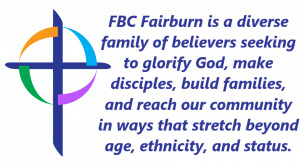I watched the news last night. Amid the stories concerning coronavirus and weather, I heard of a youth pastor in our state who had fabricated a story about being kidnapped and robbed by two black men in order to hide the fact that he visited a hotel to meet with a male prostitute. Yes, read that line again. I am sure that you can readily identify several sin issues in just the one sentence without reading the full news story!
As Christians, we typically are able to point out the large sins in society. Very much like Gladys Kravitz from “Bewitched”, we have a keen eye on the problems in the world. This is why a book like Respectable Sins is on a must read list. The heavy question that Jerry Bridges explores throughout the book is “What ever happened to sin?” He does not argue that sin doesn’t exist, but that we do not talk about it the way we once did as a culture. Citing a 1973 book by Karl Menninger, he notes that even in the presidential proclamations for the National Day of Prayer, Eisenhower was the last public official to specifically call out sin in 1953 –and his statement was borrowed from Abraham Lincoln in 1863![1] By and large the concept of sin as a society has disappeared.
 Bridges uses this backdrop to engage the believer in a self-adjudicating look at our own heart. If sin in the public eye is vanishing, what is happening in our own hearts? How acceptable do we find sin to be when it is our sin? This is not to dismiss other sins; they need to be addressed. It is to call our attention to the nature of sin that we struggle with.
Bridges uses this backdrop to engage the believer in a self-adjudicating look at our own heart. If sin in the public eye is vanishing, what is happening in our own hearts? How acceptable do we find sin to be when it is our sin? This is not to dismiss other sins; they need to be addressed. It is to call our attention to the nature of sin that we struggle with.
The premise of this book takes hard look at two co-existing realities. First, you and I are saints! “The Greek word for saint is hagios, and it refers not to one’s character, but to a state of being. Its literal meaning is ‘one who is separated unto God.’ In this sense, every believer – even the most ordinary ad the most immature – is a saint.”[2] The second reality is that there is a war going on for control of our hearts. Galatians 5.17 says , “For the flesh sets its desire against the Spirit, and the Spirit against the flesh; for these are in opposition to one another, so that you may not do the things that you please.”[3] This spiritual battle is not to win your heart outright because you are a saint if you are a believer in Christ – your heart has already been won! This battle is for momentary control of your heart. The sin that is deep within the flesh still wants its release and acknowledgment. Bridges stakes his ground for this book on this major claim:
“One of our problems, however, is that we neither think of ourselves as saints…nor do we think of such actions as our gossip and impatience as sin. Sin is what people outside our Christian communities do. We can readily identify sin in the immoral or unethical conduct of people in society at large. But we often fail to see it in what I call the ‘acceptable sins of the saints.’ In effect, we, like society at large, live in denial of our sin.”[4]
I should probably tell you that this is neither a comfy feel good read nor is it a grumpy legalistic/judgmental read. It is an honest and grace-driven appeal to your heart and to my heart as believers in Christ to take a real look at what we tolerate in ourselves that we probably wouldn’t tolerate in others.
I have not set out to give a major book review, but a reason for my recommendation in the books I listed two weeks ago. My goal is to give you a little bit of the book to pique your interest and hopefully encourage you to read it for yourself. So, let me bullet point some things about this book for you:
- Jerry Bridges writes with a pastor’s heart. The book is not a heavy, doom and gloom, the church is the problem type of read. He confronts in a conversational way to help you and me see what is in our heart.
- This book is about hope. None of us want to struggle with sin. None of us are proud of the fact that sin still exists in our lives (at least, none of us who are serious about the Gospel should be proud…we can have a different conversation if you don’t fall into that category). This book continues to show us the grace of God in the victory of Christ.
- Being a disciple of Christ is the primary responsibility of Bridges’ writing. I do not recommend self help books. I wish the churched up genre of self help would disappear. The reason Jerry Bridges has written this book is because he loves the Bride of Christ. He loves the Church. His heart as a pastor is to see Christ followers demonstrate a life that has been changed.
- The inward approach that Bridges takes toward sin is the biblical pattern of societal change. You and I cannot legislate morality. However, the Gospel can renew our heart and our view of our personal sin in a way that the outside world can see a major move of God.
- By nature, this book uncovers things in our hearts that would easily be left alone. I like that! I don’t go to the doctor for him to look at my skin, hair, and eyes to tell me that everything is okay with me. It isn’t until he listens to my heart, analyzes the bloodwork, presses around on my body in ways that are uncomfortable, shines a light in my mouth and ears, and other practices of a physical exam that he can properly deduce my health. Sometimes, those exams lead to a deeper exploration. This book is the deeper exploration. You and I need this!
I believe that every Christian needs to examine their heart through Scripture. I also believe that a book like Respectable Sins can be a very helpful tool to show us how. One last quote from the book to draw you in:
“Now, let me remind you, as I do in almost all the chapters, that this is a book about our ‘respectable’ sins, the sins that we tolerate in our lives while we condemn the more flagrant sins of society around us. May we be as severe with ourselves over our own subtle sins as we are with the vile sins we condemn in others. My we not be like the self-righteous Pharisee in the temple who prayed, ‘God, I thank you that I am not like other men’ but may we continually have the humble attitude of the tax collector who said, ‘God, be merciful to me, a sinner’ (Luke 18.11-13).”[5]
I pray that you find a copy of this book and someone to read through it with you. May God bless your growth as a follower of Christ!
You can find a copy of this book at: https://tinyurl.com/ybotajob

[1] Jerry Bridges, Respectable Sins: Confronting the Sins We Tolerate (Colorado Springs: NavPress, 2007), 17.
[2] Bridges, 12.
[3] Unless otherwise noted, Scripture taken from the NEW AMERICAN STANDARD BIBLE®, Copyright© 1960, 1962, 1963, 1968, 1971, 1973, 1975, 1977, 1995 by The Lockman Foundation. Used by permission. www.lockman.org
[4] Bridges, 16.
[5] Bridges, 120.
